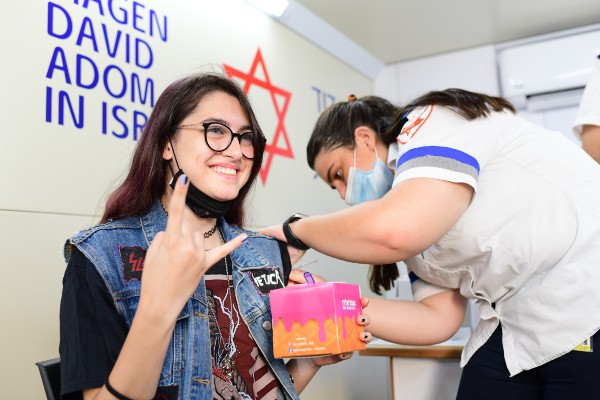Coronavirus cabinet to discuss possible new restrictions on Tuesday evening.
By World Israel News Staff
As the Delta variant surges, the Ministry of Health reported 501 new cases of Covid on Monday, the highest one-day rise in infections since March.
According to Ynet, about half of those cases were schoolchildren. Of the new cases, 31 were people who had recently returned from overseas.
Israel is currently dealing with 2,901 active cases, of which 73 require hospitalization. Another 50,000 Israelis are in quarantine.
According to Health Ministry figures, 20,000 people were vaccinated on Monday, of whom 2,800 were receiving their second dose. More than 5.8 million Israelis, about 80 percent of the adult population, have already received both shots.
The Health Ministry also said the Pfizer vaccine has been 64 percent effective in preventing symptoms in the last month.
Israel’s coronavirus cabinet was due to meet on Tuesday evening to discuss possible new restrictions. Among the issues on the agenda are rapid testing for children at events, mandatory testing at geriatric facilities, mandatory quarantine for Israelis returning from hotspots abroad, and whether to require an abridged Green Pass for events attended by unvaccinated or vulnerable individuals.
On Tuesday morning, Israeli officials announced a deal to transfer 700,000 vaccine doses to South Korea. The doses expire at the end of July. A similar agreement with the Palestinian Authority for the same batch fell through in June, raising the prospect that that millions of dollars worth of vaccine doses would expire and have to be thrown out.
The Korea Disease Control and Prevention Agency’s commissioner Jeong Eun-kyeong told South Korean media the Israeli jabs were “believed to be without defects or quality issues.”
“These doses are from the same batch being used in Israel this month, and from what we have gathered the vaccines have been kept in good condition per the cold chain requirements under minus 70 degrees Celsius,” she said. “Korea’s drug regulator will inspect the vaccines before they can be administered here.”




